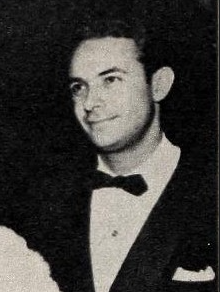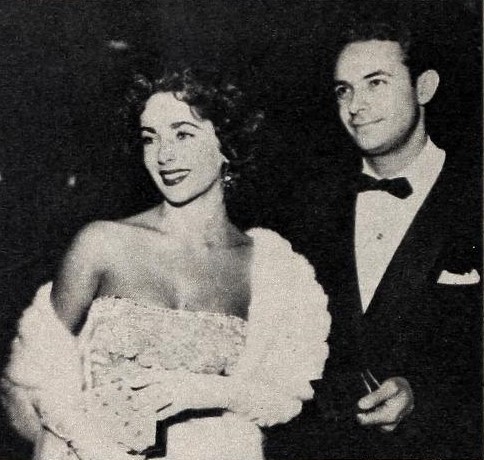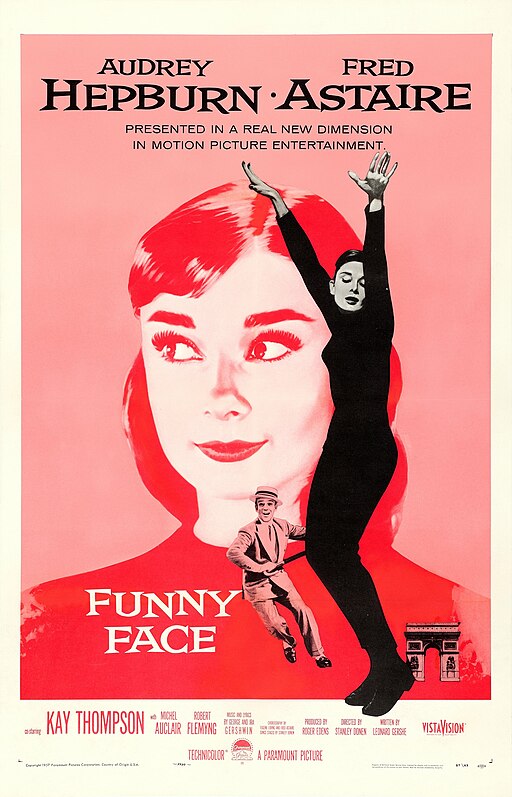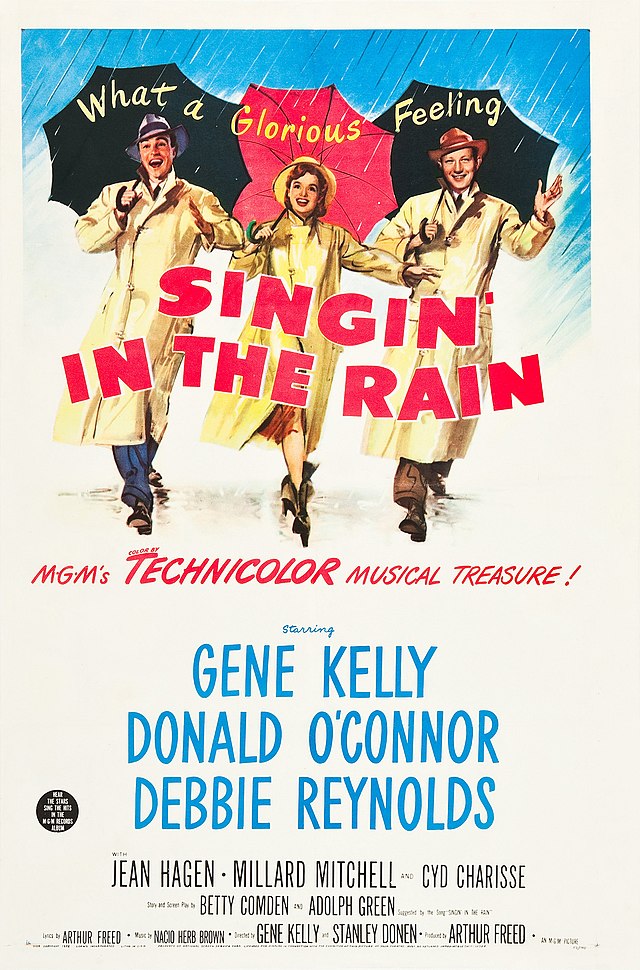Stanley Donen
back| Full Name | Stanley Donen |
| Born | April 13, 1924 |
| Birthplace | Columbia, South Carolina, USA |
| Died | February 21, 2019 |
| Buried | Not disclosed |
| Married to | Jeanne Coyne (1948–1951) - Marion Marshall (1952–1959) - Adelle Beatty (1960–1971) - Yvette Mimieux (1972–1985) - Pam Braden (1990–1994) - He was also in a long-term relationship with Elaine May from 1999 until his death. |
| Children | Joshua Donen - Mark Donen - Peter Donen |
| Notable films | On the Town (1949) - Singin' in the Rain (1952) - Funny Face (1957) - Charade (1963) |
Stanley Donen
The King of Musicals
Stanley Donen (1924-2019) was an American film director and choreographer renowned for revolutionizing the musical film genre. Born in Columbia, South Carolina, he moved to Hollywood and made his directorial debut with On the Town (1949), a pioneering musical shot on location.
Donen's mastery was further exhibited in Singin' in the Rain (1952), hailed as one of the greatest musicals ever made. His versatility extended beyond musicals to include comedies and thrillers like Charade (1963). Notable for blending technical innovation with storytelling, Donen worked with leading stars of his time, creating cinema that was both entertaining and artistically significant.
Related
Biography of Stanley Donen (1924 – 2019)
Stanley Donen was born on April 13, 1924, in Columbia, South Carolina. He developed an early interest in dance and cinema, and this passion led him to New York City, where he began his career on Broadway. His talent quickly propelled him to Hollywood, where he began an illustrious career in film direction.
Donen's directorial debut came with On the Town (1949), a musical he co-directed with Gene Kelly, marking one of the first musicals to shoot on location. However, it was Singin' in the Rain (1952), also co-directed with Kelly, that cemented his reputation as a leading director in Hollywood. This film is often hailed as one of the greatest musicals ever made.
Throughout the 1950s and 1960s, Donen continued to direct a variety of successful films. Seven Brides for Seven Brothers (1954) was another musical highlight, known for its energetic and acrobatic dance sequences. In Funny Face (1957), he directed Fred Astaire and Audrey Hepburn in a charming blend of fashion and dance in picturesque Paris.
Moving beyond musicals, Donen proved his versatility with films like Charade (1963), a suspense thriller starring Cary Grant and Audrey Hepburn, which is often referred to as "the best Hitchcock movie that Hitchcock never made." He continued to explore different genres with Two for the Road (1967), a non-linear look at the ups and downs of marriage, showcasing his ability to handle complex narratives and character development.
Donen's later years were marked by less frequent directorial work, though he remained involved in the film industry and received various accolades for his contributions to cinema, including a Lifetime Achievement Award from the Academy of Motion Picture Arts and Sciences in 1998.
Stanley Donen passed away on February 21, 2019. His legacy as a pioneer of the musical film genre and his contributions to the broader landscape of American cinema are enduring. He is remembered not only for his innovative techniques and musical expertise but also for his ability to tell compelling stories across a variety of genres.
Short Overview of the Career of Stanley Donen:
Analysis of Stanley Donen’s Directing Style:
Stanley Donen's directing style is celebrated for its innovation, versatility, and substantial influence on the musical genre, though his talents extended well beyond to include comedies, thrillers, and dramas. Here’s a deeper look at the hallmarks of Donen's style:
Embracing and Enhancing the Musical Genre
Donen’s work in the musical genre was groundbreaking. He transformed traditional stage musicals into dynamic cinema experiences. His use of camera movements to enhance dance sequences was revolutionary at the time. In films like Singin' in the Rain and On the Town, he seamlessly integrated dance with camera work, making the viewer feel like part of the performance. This was particularly evident in the way he captured Gene Kelly’s fluid dance movements, using long takes and wide shots that showcased the full choreography.
Innovations in Cinematography and Special Effects
Donen was an early adopter of new cinema technologies and techniques. For instance, in Royal Wedding, he famously created the illusion of Fred Astaire dancing on the ceiling and walls through a rotating room device, a physical effect that predates the widespread use of computer-generated imagery. This innovative approach not only dazzled audiences but also expanded the visual possibilities of film.
Stylistic Versatility
While best known for his musicals, Donen did not confine himself to one genre. His foray into romantic comedies, thrillers, and drama illustrates his adaptability and broad directorial range. For example, Charade plays out like a Hitchcock thriller with a distinct flair for combining suspense with romantic and comedic elements, creating a hybrid genre that was uniquely Donen's. Similarly, Two for the Road explored the complexities of a long-term relationship through a non-linear narrative, a storytelling technique that was ahead of its time for Hollywood cinema.
Collaboration with Leading Stars
Donen's films are marked by his collaborations with major stars of the era, tailoring projects to suit their personas and strengths. His repeat collaborations with actors like Audrey Hepburn, Fred Astaire, and Gene Kelly not only drew on their star power but also enhanced their on-screen personas, allowing them to showcase their talents in fresh and engaging ways.
Thematic Exploration
Donen frequently explored themes related to love, relationships, and the human experience through both a serious and comedic lens. His films often examined personal and societal issues, such as the exploration of marital strife and fidelity in Two for the Road or the more lighthearted take on gender roles and workplace dynamics in The Pajama Game.
Sense of Playfulness
A sense of playfulness and charm is a constant in Donen’s films, whether in whimsical musicals or suspenseful thrillers. He had a knack for blending light-heartedness with depth, ensuring his films remained entertaining yet meaningful. This ability to balance different tones helped him create films that were both critically acclaimed and beloved by audiences.
Memorable Quotes from Stanley Donen:
On filmmaking and artistry:
"You don't make movies, they make you."
Reflecting his views on cinema’s purpose:
"I don't believe in auteurism because it doesn't acknowledge the contributions of the many craftsmen who contribute creatively."
On his cinematic goals:
"All I've ever done with my work is to try and make people happy, to take them away from the craziness of the world outside and into a world of romance and music and dancing."
Discussing his experience and evolution as a director:
"I never really considered myself a choreographer until I did the ballet in 'Singin' in the Rain.' I always thought of myself as a film director who could dance."
On the enduring power of his films:
"If anyone gets any sort of pleasure from watching my films, then I feel I've done a good job."
His pragmatic view on movie production:
"Movie making is a collaborative art. A great movie isn't made by one person, it's made by a team."
Reflecting on the changing nature of film audiences:
"The audience changes every night. You're the same person. The audience is a different animal."
Awards and Recognitions:
Academy Awards
1998: Stanley Donen was honored with an Academy Honorary Award "in appreciation of a body of work marked by grace, elegance, wit and visual innovation." This award was significant as it recognized his lifelong contributions to cinema, despite him never winning a competitive Oscar.
British Academy Film Awards (BAFTA)
1985: Received the BAFTA Fellowship, the highest honor the British Academy can bestow, recognizing his outstanding lifetime achievement in film.
Golden Globe Awards
1955: Nominated for Best Director for Seven Brides for Seven Brothers. This was a rare nod in mainstream award circuits where musicals often struggled to gain recognition in non-musical categories.
Berlin International Film Festival
1960: His film The Grass Is Greener won the Silver Bear for Best Director at the Berlin International Film Festival, underscoring his international acclaim.
Other Honors and Awards
- Saturn Awards: Nominated for Best Director for Saturn 3 in 1981.
- Laurel Awards: Received multiple nominations in the 1950s and 60s, notably for Charade and Indiscreet, reflecting his popularity and success in the comedy and romance genres.
- Hugo Awards: Nominated for Best Dramatic Presentation for Charade in 1964, highlighting his work in genres beyond musicals.
- Venice Film Festival: Charade was nominated for the Golden Lion in 1963, further establishing its appeal and Donen’s prowess in crafting engaging, stylistic films.
Career Retrospectives and Tributes
Throughout his later years, Stanley Donen was celebrated with retrospectives at major film institutions like the Film Society of Lincoln Center and the British Film Institute. These events showcased his diverse body of work and reaffirmed his status as a pioneering director in musicals and beyond.
Impact on Film and Recognition
Despite not having a long list of traditional competitive awards like many of his contemporaries, Donen's innovative direction and the lasting impact of his films have cemented his legacy as a legendary filmmaker. His honorary Oscar in 1998 perhaps best encapsulates his career: recognized not for individual films but for a lifetime of influential, stylish, and entertaining cinema.
Movies Directed by Stanley Donen:
1949
On the Town
Three sailors, played by Gene Kelly, Frank Sinatra, and Jules Munshin, have a 24-hour shore leave to see the sights of New York City. The film is celebrated for its energetic choreography and on-location scenes in NYC.
1951
- Royal Wedding
A brother-sister dance duo, played by Fred Astaire and Jane Powell, travel to London to perform during the royal wedding. Famous for Astaire's iconic dance sequence where he dances on the ceiling.
- Love Is Better Than Ever
A romantic comedy about a dance teacher from Connecticut who falls in love with a Broadway agent. The film explores themes of love and ambition.
1952
Singin' in the Rain
Often regarded as one of the greatest musical films ever, this movie, co-directed with Gene Kelly, revolves around the transition from silent films to "talkies." It stars Kelly, Donald O'Connor, and Debbie Reynolds in a tale full of iconic songs and dances.
1954
- Seven Brides for Seven Brothers
In this vibrant musical set in 1850s Oregon, a backwoodsman brings a wife home to his farm, prompting his six brothers to also seek brides. Known for its robust musical numbers and athletic dance sequences.
- Deep in My Heart
A biographical musical film about the life and music of composer Sigmund Romberg, which features cameo appearances by many of the era's top musical stars.
1955
It's Always Fair Weather
Co-directed with Gene Kelly, this musical comedy-drama follows three World War II comrades who reunite ten years later, only to discover they have little in common. Notable for its early use of Cinemascope in dance sequences.
1957
- Funny Face
A fashion photographer, played by Fred Astaire, transforms a bookish young woman, played by Audrey Hepburn, into a top model. Set in Paris, it features memorable Gershwin tunes and lavish costumes.
- The Pajama Game
Based on the Broadway musical of the same name, this film deals with labor troubles in a pajama factory. Doris Day stars as a worker who falls for the new superintendent.
1958
Indiscreet
In this romantic comedy, Ingrid Bergman plays a famous actress who falls for a diplomat (Cary Grant) who is secretly married—or so he claims.
1960
Once More, with Feeling!
Yul Brynner and Kay Kendall star in this comedy about a temperamental conductor and his wife, and their tumultuous relationship.
1963
Charade
Often referred to as "the best Hitchcock movie that Hitchcock never made," this film stars Audrey Hepburn and Cary Grant in a blend of romance, suspense, and comedy set in Paris. It's known for its stylish execution and witty script.
1966
Arabesque
A thriller involving a professor, played by Gregory Peck, who becomes embroiled in an international espionage plot concerning a hieroglyphic cipher. Sophia Loren co-stars.
1967
Two for the Road
A sophisticated look at the complexities of marriage as a couple reflects on their 12 years together while traveling through France. Stars Albert Finney and Audrey Hepburn.
1974
The Little Prince
A musical adaptation of Antoine de Saint-Exupéry's classic children's book. It combines fantasy, philosophy, and musical elements to tell the story of a pilot who meets a young prince from another planet.
1975
Lucky Lady
A comedy-drama set during Prohibition, starring Gene Hackman, Liza Minnelli, and Burt Reynolds as rum runners who become romantically entangled.
1978
Movie Movie
A tribute to the golden age of movies, featuring a double bill: one part is a black-and-white film about boxing, and the other is a musical comedy, both done in the style of 1930s genre films.
1980
Saturn 3
A sci-fi thriller featuring a couple living on a remote moon base who face a murderous android. Stars Kirk Douglas, Farrah Fawcett, and Harvey Keitel.
1984
Blame It on Rio
A comedy about two middle-aged men who end up in romantic entanglements with each other's daughters while vacationing in Rio de Janeiro. Stars Michael Caine and Demi Moore.




